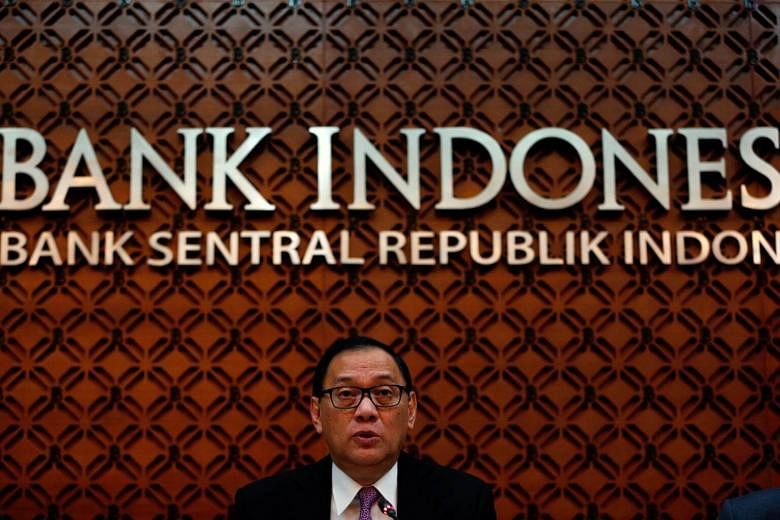JAKARTA (REUTERS, BLOOMBERG) - Indonesia's central bank, wary of risks including a "big chance" US interest rates will rise in June, left its benchmark interest rate unchanged for a seventh month as inflation heads closer to the top of the target band.
Bank Indonesia (BI) governor Agus Martowardojo and his board held the 7-day reverse repurchase rate steady at 4.75 per cent on Thursday. The central bank also kept the deposit facility and lending facility rates, the floor and ceiling of the overnight interbank money market, unchanged at 4.00 per cent and 5.50 per cent, respectively.
The bank went on a cutting spree last year as it lowered rates six times, but has been on hold since the last move in October.
"With the economy struggling to gain momentum, but inflationary pressures on the rise, Bank Indonesia's decision to keep interest rates on hold at 4.75 per cent today came as no surprise," said Gareth Leather, a senior Asia economist at Capital Economics in London. He forecasts rates will probably remain on hold for the rest of the year.
Consumer prices rose at the fastest pace in more than a year in April, gaining 4.17 per cent from a year earlier. With households expected to stock up on food items in the lead up to Ramadan, the fasting month during which Muslims commonly mark the end of each day with feasts, price pressures are rising. The central bank aims to keep inflation in a range of 3 per cent to 5 per cent.
Bank Indonesia said inflation is "manageable", but it faces risks, including higher energy costs and a pick up in food prices. Going forward "policy coordination between the government and Bank Indonesia in managing inflation will continue to be strengthened," it said.
The central bank is forecasting economic growth of 5.1 per cent in the second quarter and above 5.2 per cent in the following two quarters. It sees expansion of 5 per cent to 5.2 per cent next year.
Bank Indonesia has sought to support growth in the economy by easing reserve limits on lenders from July. The move may spur credit growth, adding the equivalent of 0.4 per cent to 0.5 per cent of gross domestic product, or close to 1 percent of broad money to the banking system, according to Credit Suisse Group.
The currency, which has gained 0.9 per cent against the dollar this year, is being supported by foreign capital inflows, an improvement in the sovereign rating outlook and better domestic economic prospects, the central bank said.

